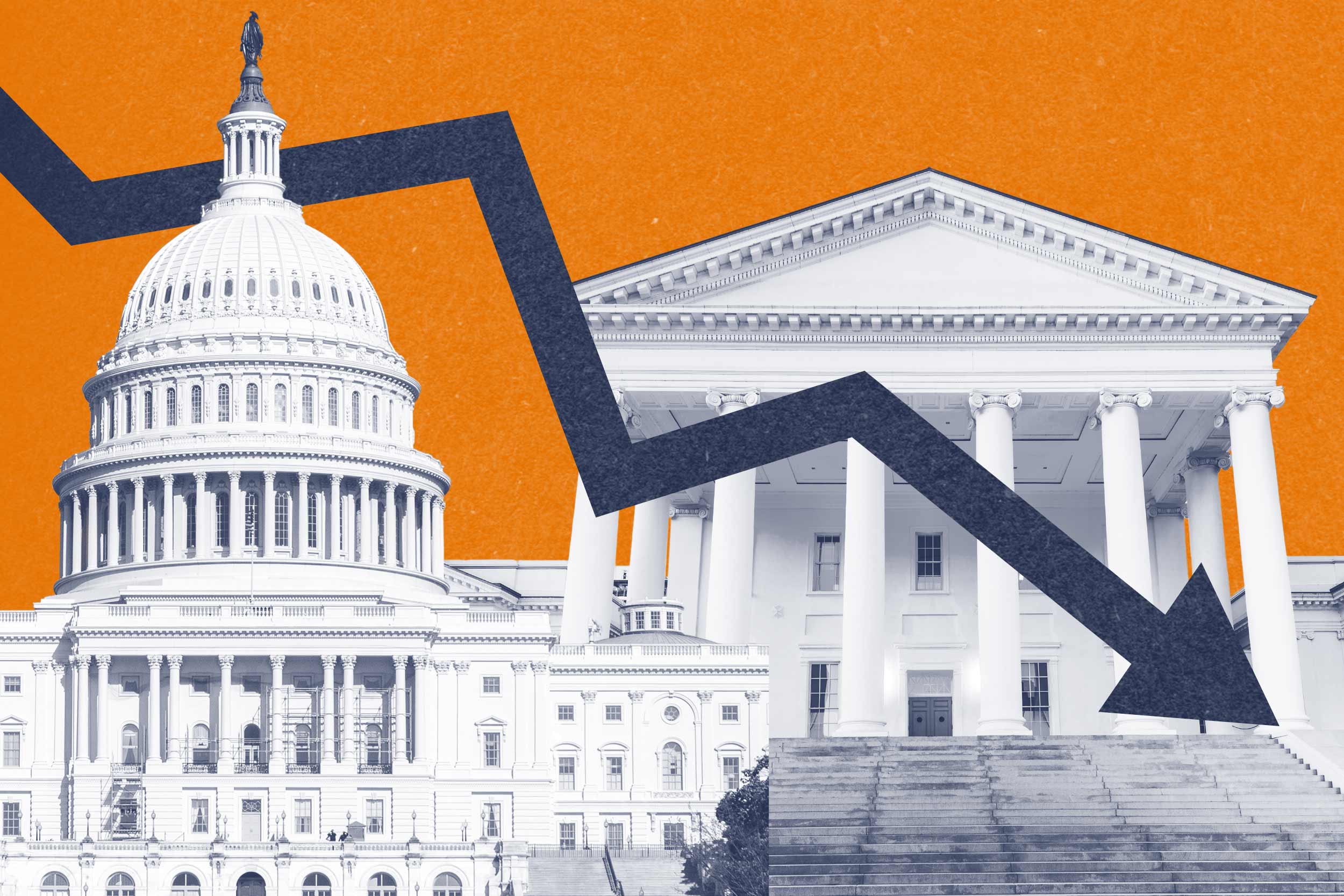University of Virginia experts say the ongoing federal government shutdown, now more than three weeks old with no sign of resolution, will likely have long-lasting effects on Virginia’s already slowing economy.

The shutdown could have far-reaching effects on Virginia’s economy if it continues into the holidays, say Ian Solomon, dean of the Frank Batten School of Leadership and Public Policy, and Eric Scorsone, executive director of UVA’s Weldon Cooper Center for Public Service. (Contributed photos)
“An extended government shutdown has a negative impact on overall economic growth and on anybody who needs government services,” Ian Solomon, dean of the Frank Batten School of Leadership and Public Policy, said. “The overall decline of economic growth hurts everybody.”
“Keep in mind that in the first few weeks, only about 25% of the government was affected. As this goes on, it could cause more problems,” said Eric Scorsone, executive director of UVA’s Weldon Cooper Center for Public Service and an associate professor of public policy at the Batten School. “We have to look at trends and policies and do our best to understand what’s happening. … But there are concerns that 2026 is going to be a tough year for Virginia. It may pick up in 2027, assuming the national economy picks up at that point.”










